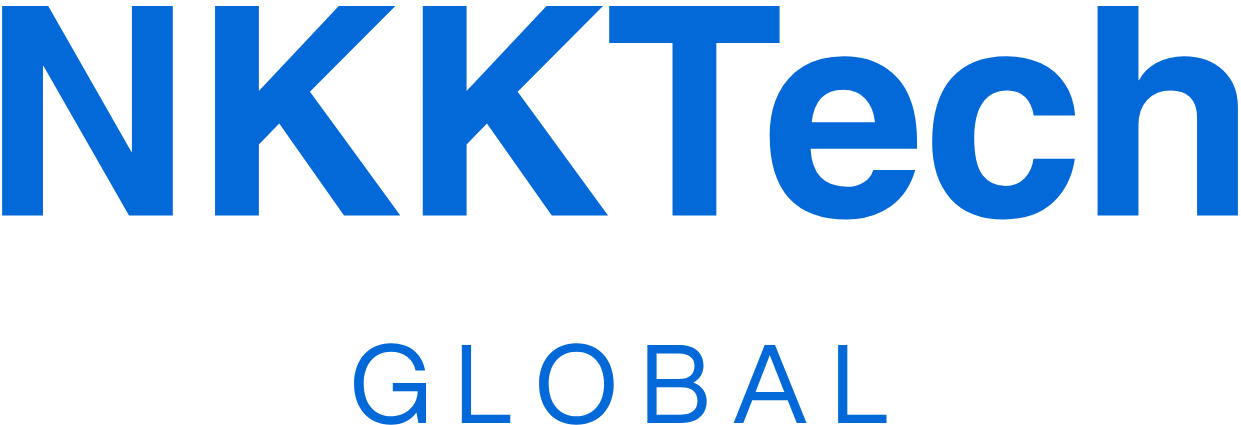Unleashing Growth: The Strategic Power of Software Development Outsourcing
Table of Contents:
- Understanding Software Development Outsourcing
- Unlocking Core Benefits: Cost Efficiency & Project Acceleration
- Accessing Global Expertise and Specialized Skills
- Navigating Challenges and Ensuring Success
- Choosing Your Ideal Software Development Outsourcing Partner
Understanding Software Development Outsourcing
Software development outsourcing has become a pivotal strategy for businesses aiming to enhance their technological capabilities without the complexities of in-house expansion. At its core, software development outsourcing involves contracting an external company or individual to handle specific software-related tasks, projects, or even entire product development cycles. This strategic move allows organizations to leverage external expertise, resources, and often, more efficient operational models. It’s not merely about cutting costs; it’s about strategic partnership and efficiency. The global IT outsourcing market continues to grow, reflecting a widespread recognition of its benefits.
There are various models within software development outsourcing, including offshore (contracting services to a distant country), nearshore (contracting to a neighboring country), and onshore (contracting within the same country). Each model offers distinct advantages concerning time zones, cultural alignment, and cost structures. Businesses typically choose the model that best aligns with their project requirements, budget constraints, and risk tolerance. For instance, offshore development often provides the most significant cost savings, while nearshore can offer better communication due to closer time zones. Understanding these nuances is crucial for successful engagement.
Companies opt for software development outsourcing for a multitude of reasons, ranging from scaling operations rapidly to accessing niche skills not available domestically. This approach allows businesses to remain agile and competitive in a fast-evolving digital landscape, focusing their internal teams on core competencies. By offloading development tasks, companies can streamline their processes, reduce administrative burdens, and reallocate internal resources to strategic initiatives. The shift towards external partnerships represents a modern approach to managing technological growth and innovation, making it an indispensable tool for many enterprises today.
Unlocking Core Benefits: Cost Efficiency & Project Acceleration
One of the most compelling reasons to embrace software development outsourcing is the undeniable benefit of cost efficiency. By opting for software development outsourcing, companies can significantly reduce their operational expenses related to infrastructure, employee salaries, benefits, and training. Instead of investing heavily in setting up an entire in-house development department, businesses can access ready-to-go teams and resources, converting fixed costs into variable ones. This economic advantage is particularly pronounced when partnering with firms in regions with lower labor costs, leading to substantial savings that can be reinvested into other areas of the business or product development. It allows for a more agile financial model, adapting to market demands without hefty upfront investments.
Beyond cost savings, outsourcing dramatically contributes to project acceleration. External development teams, often specialized in specific technologies or methodologies, can kickstart projects faster than building an internal team from scratch. Their expertise and established workflows mean quicker onboarding and efficient execution, significantly reducing time-to-market for new products or features. This rapid development cycle is critical in competitive industries where being first to market can define success. Faster project delivery means earlier revenue generation and quicker iteration based on user feedback, providing a crucial competitive edge. The ability to scale teams up or down based on project needs also adds immense flexibility, preventing bottlenecks and ensuring continuous progress.
Furthermore, outsourcing mitigates the risks associated with project delays and budget overruns. Reputable outsourcing partners operate with clear contracts and service level agreements (SLAs), ensuring predictable outcomes and adherence to timelines. This structured approach helps businesses manage expectations and maintain control over the development process, even when external teams are involved. The emphasis on efficiency and streamlined processes inherent in quality software development outsourcing partnerships directly translates into a more predictable and successful project trajectory, ultimately contributing to better business outcomes. The value derived from these combined benefits makes a strong case for its adoption.
Accessing Global Expertise and Specialized Skills
A significant advantage of software development outsourcing is the unparalleled access it provides to a global pool of specialized talent. Local markets can often be limited, making it challenging to find individuals with niche skills in emerging technologies like AI, blockchain, or advanced data analytics. When you opt for software development outsourcing, geographical barriers dissolve, opening up opportunities to collaborate with highly skilled professionals from around the world. This means you can secure the best possible talent for your project, regardless of their location, ensuring that your software is developed using the latest tools and methodologies by experts in their respective fields. This breadth of talent ensures higher quality deliverables and more innovative solutions than might be achievable with a constrained local talent pool.
This global access also extends to diverse perspectives and problem-solving approaches. Working with teams from different cultural backgrounds can introduce fresh ideas and creative solutions that might not emerge from a homogeneous internal team. This diversity fosters innovation and can lead to a more robust and user-friendly product. Outsourcing partners often maintain large teams with a wide array of competencies, meaning they can quickly assemble a dedicated team tailored precisely to your project’s unique requirements, from frontend development to complex backend systems and quality assurance. This agility in team formation ensures that projects are always staffed with the right experts at the right time, minimizing skill gaps.
Moreover, top-tier outsourcing firms continually invest in training and upskilling their workforce, ensuring they remain at the forefront of technological advancements. This commitment to continuous learning means that your project benefits from cutting-edge expertise without your company having to fund internal training programs. It’s a cost-effective way to stay ahead of the technology curve. By leveraging this external knowledge base, businesses can develop more sophisticated, resilient, and scalable software solutions, ultimately enhancing their market position and competitiveness. Accessing such specialized talent through software development outsourcing is a powerful driver for technological excellence and innovation.
Navigating Challenges and Ensuring Success
While software development outsourcing offers numerous advantages, it also presents a unique set of challenges that need careful management for success. One primary concern is communication. Differences in time zones, languages, and cultural norms can lead to misunderstandings and delays if not addressed proactively. Establishing clear, consistent communication channels, regular check-ins, and utilizing collaborative tools are essential strategies. Implementing a robust communication plan from the outset, including designated points of contact and agreed-upon meeting schedules, can significantly mitigate these issues. It’s also beneficial to bridge cultural gaps through mutual understanding and respect, fostering a strong working relationship. Effective communication is the bedrock of any successful outsourcing partnership, ensuring alignment on goals and progress.
Another critical challenge involves quality control and project management. Ensuring that the outsourced work meets your quality standards requires diligent oversight. This includes defining clear scope and deliverables, setting measurable KPIs, and implementing rigorous testing protocols. Employing an experienced in-house project manager to oversee the outsourced team can provide necessary oversight and act as a crucial liaison. Regular code reviews, phased deliverables, and continuous feedback loops are vital for maintaining quality throughout the development lifecycle. A well-defined project management framework, often utilizing agile methodologies, can help maintain transparency and control, making the software development outsourcing process more predictable and manageable. This proactive approach minimizes risks and ensures the final product aligns with expectations.
Security and intellectual property (IP) concerns are also paramount when engaging in software development outsourcing. Businesses must ensure that their sensitive data and proprietary information are protected. This involves signing comprehensive non-disclosure agreements (NDAs) and intellectual property clauses with the outsourcing partner. Verifying the partner’s security protocols, data handling policies, and compliance certifications is crucial. Reputable firms will have robust security measures in place to safeguard client data. By addressing these potential pitfalls proactively through thorough due diligence, clear contractual agreements, and continuous monitoring, businesses can harness the full potential of software development outsourcing while effectively managing associated risks. This ensures that the strategic benefits are realized without compromise.
Choosing Your Ideal Software Development Outsourcing Partner
Selecting the right software development outsourcing partner is perhaps the most crucial step in ensuring a successful engagement. It’s not a decision to be taken lightly, as the quality and efficiency of your project heavily depend on this choice. Begin by thoroughly evaluating potential partners based on their track record and portfolio. Look for companies with extensive experience in your industry or with similar projects, and examine their case studies and client testimonials. A strong portfolio demonstrates proven capabilities and a deep understanding of relevant technologies and business challenges. This initial vetting helps to narrow down the field to truly capable contenders who can deliver on promises. Pay close attention to the quality of their past work and how they handled previous client engagements.
Beyond experience, assess their technical expertise and technological stack. Does their team possess the specific skills and knowledge required for your project? Do they work with the latest tools and frameworks? A partner committed to continuous learning and adopting new technologies will be better equipped to handle complex and future-proof projects. Communication capabilities are equally vital. Evaluate their English proficiency, response times, and their preferred communication channels. A transparent and proactive communication style is essential for mitigating misunderstandings and building a strong, collaborative relationship. Consider conducting interviews with the proposed team members to assess their technical acumen and cultural fit, ensuring seamless integration with your internal processes.
Finally, delve into their project management methodologies, security protocols, and pricing structure. Do they follow agile, waterfall, or a hybrid approach? How do they ensure data security and intellectual property protection? Transparency in pricing, along with clear contractual terms, is paramount. A reliable partner will provide detailed cost breakdowns and clearly defined service level agreements (SLAs). Don’t hesitate to ask for references and speak directly with their previous clients. By meticulously evaluating these critical factors, you can make an informed decision and forge a long-term partnership that truly accelerates your projects and optimizes your costs, ultimately leveraging software development outsourcing for significant competitive advantage. This diligent process ensures maximum return on your investment.
The strategic adoption of software development outsourcing offers an unparalleled pathway to accelerate your innovation cycles, significantly optimize operational costs, and tap into a vast pool of global talent. By carefully navigating the selection process and focusing on transparent communication, businesses can transform their challenges into opportunities for unprecedented growth and efficiency. This approach empowers you to stay ahead in a rapidly evolving digital landscape.
Ready to explore how software development outsourcing can transform your business? Reach out to our experts today to discuss your project needs and discover tailor-made solutions. For more insights into digital transformation and technology trends, visit Industry Insights.
Contact us for a consultation: contact@nkk.com.vn




